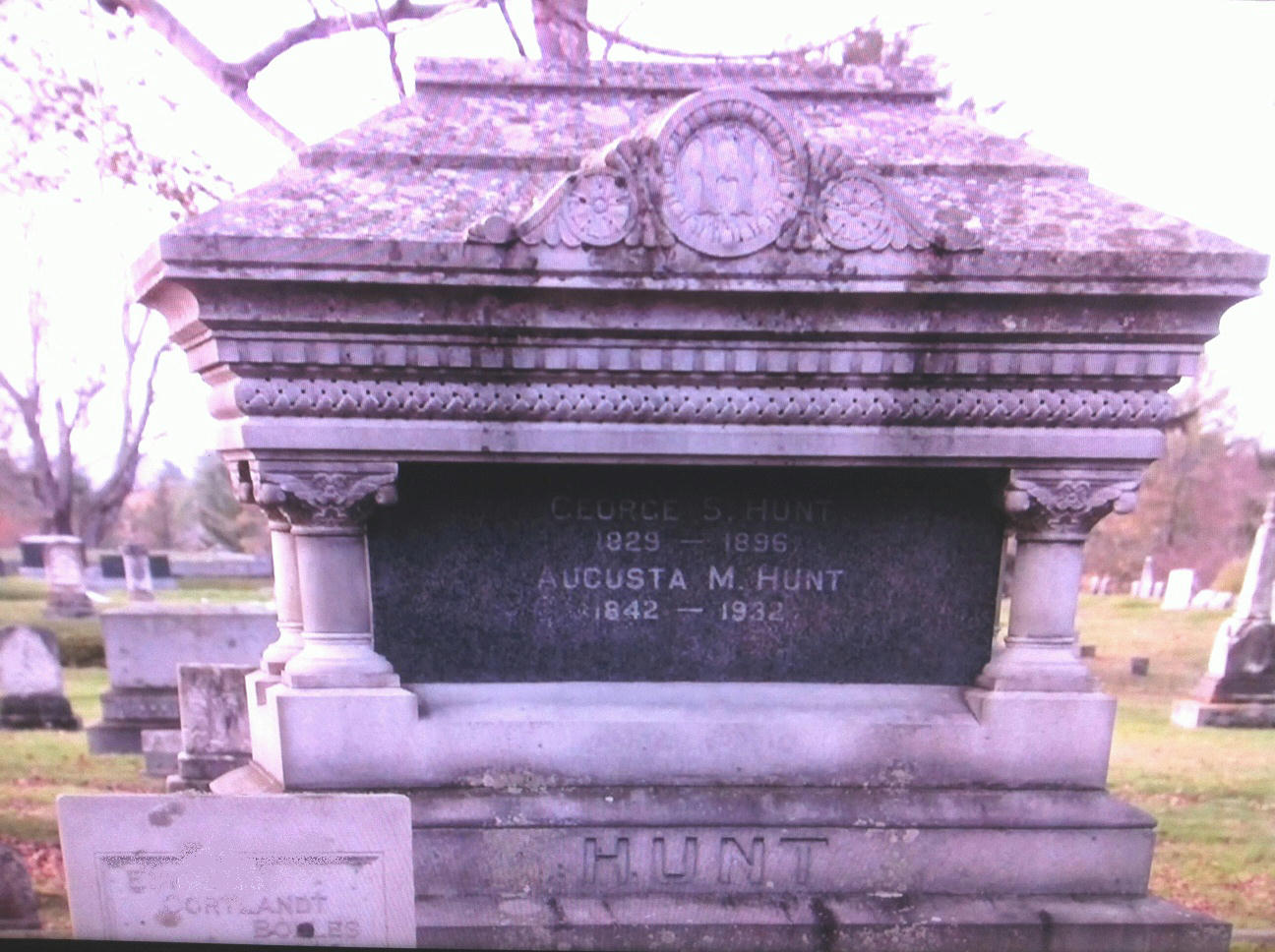The Helen Hunt episode of Who Do You Think You Are? did not take us to any deep south locales, but I won't hold that against her. I think a mention on this blog is still well deserved.
Since the episode aired, I have read some criticisms -- the show was boring, all Ms. Hunt did was mumble, and her reactions were too subdued (to name a few). Conversely, I thoroughly enjoyed this episode. I like that there were a lot of questions her father could not answer -- how many times has that happened to us "real folk?" I like that Ms. Hunt had felt connections to places in the past but didn't know why, and was now learning those connections were real and tangible. She even mentioned she felt as though little pieces inside her were "waking up."
The women's history lessons learned were awesome. I like how Ms. Hunt had a certain image of her ancestor Augusta Barstow Hunt, solely on learning she was a member of the Women's Christian Temperance Union, then had that image enhanced by truly learning and understanding the history surrounding the organization. She learned that alcohol abuse in the home was only a small part of it. That fighting for women's rights in even broader ways was the intent and result. You could clearly see respect for Augusta was gained based on the research, and by the end of the episode, a relationship with someone she never knew clearly had been formed. I was proud for her!
As far as Ms. Hunt's verbal responses to what she was learning -- I dare say she was one of the most "normal" of all the participants in all the seasons. She was not on stage, acting in a role for our benefit. She was a woman on a journey through her family history, asking pertinent questions and taking in the information provided.
Seeing Helen Hunt putting together scrapbooks for her daughter in the beginning of the episode, I trust she definitely will be passing on the stories she learned about her ancestors. What more can we ask for?
The one criticism I would offer regarding this episode (and all the ones before, for that matter) of WDYTYA? is the lack of process. How in the world were these discoveries made? I understand the time constraints, but getting people excited about their family history is only the first step. Teaching them, even in small ways, how to conduct research will keep those truly interested going. And those are the ones who will more likely join the genealogy community (online and off) to grow in their research. Those are the ones who will take a more active role in their local societies, as well as things of and relating to history in general. Those are the ones who will stand up and offer their time in a cemetery cleanup. Those are the ones who will become blog readers and blog writers. And, yes, those are the ones who will decide if, when, and where to spend their hard-earned money -- genealogically speaking.

Since the episode aired, I have read some criticisms -- the show was boring, all Ms. Hunt did was mumble, and her reactions were too subdued (to name a few). Conversely, I thoroughly enjoyed this episode. I like that there were a lot of questions her father could not answer -- how many times has that happened to us "real folk?" I like that Ms. Hunt had felt connections to places in the past but didn't know why, and was now learning those connections were real and tangible. She even mentioned she felt as though little pieces inside her were "waking up."
 |
| George S. Hunt (1829-1896) Augusta M. Hunt (1842-1932) Evergreen Cemetery Portland, Maine Photo by timcdfw via FindAGrave |
As far as Ms. Hunt's verbal responses to what she was learning -- I dare say she was one of the most "normal" of all the participants in all the seasons. She was not on stage, acting in a role for our benefit. She was a woman on a journey through her family history, asking pertinent questions and taking in the information provided.
Seeing Helen Hunt putting together scrapbooks for her daughter in the beginning of the episode, I trust she definitely will be passing on the stories she learned about her ancestors. What more can we ask for?
The one criticism I would offer regarding this episode (and all the ones before, for that matter) of WDYTYA? is the lack of process. How in the world were these discoveries made? I understand the time constraints, but getting people excited about their family history is only the first step. Teaching them, even in small ways, how to conduct research will keep those truly interested going. And those are the ones who will more likely join the genealogy community (online and off) to grow in their research. Those are the ones who will take a more active role in their local societies, as well as things of and relating to history in general. Those are the ones who will stand up and offer their time in a cemetery cleanup. Those are the ones who will become blog readers and blog writers. And, yes, those are the ones who will decide if, when, and where to spend their hard-earned money -- genealogically speaking.
Comments